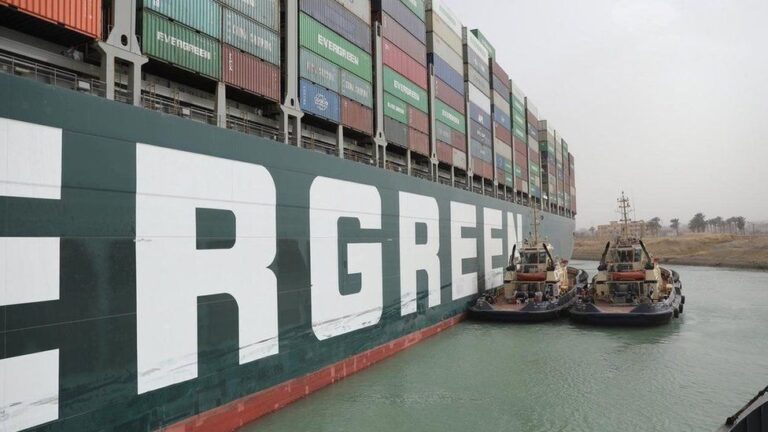The news that the grounded container ship, Ever Given, has finally docked in the UK will come as huge relief for the many retailers relying on stock on board the ship, which carries cargo between Asia and Europe.
Supply chains are still recovering from the impact of Covid-19 and Brexit, and the Suez Canal crisis has put even greater pressure on the UK’s global trade routes. The phrase ‘currently out of stock’ has become all too familiar for consumers across Europe.
From March 23rd to 29th, the Ever Given became horizontally wedged in Egypt’s Suez Canal, with the temporary blockage causing a catastrophic domino effect on global supply chain disruptions. At least 367 vessels were backed up waiting to cross, which included container ships, bulk carriers, and oil tankers and the blockage has prompted the urgent need to rethink supply chain management in the shipping and logistics industry.
The immediate fall-out from the Suez blockage is the cost of shipping rates. Add in all the paperwork, and the social distancing caused by Covid for the agents, and retailers will feel even more pressure on costs.
Soaring shipping rates – but is there an alternative?
There are only a limited number of shipping companies and they charge more or less the same amount, so shopping around doesn’t save much. Alternatives such as trains or planes are not really viable due to extremely high costs. So we are left with a door-to-door figure that is rising from pre-Covid days. According to the BBC, the backlog from the ship’s delay has led to a leap in shipping rates and sent the cost of containers soaring from £2,500 last year to £15,000 now.
If the container is full of small, high priced items, this increase per item will be measured in pennies so will make little impact. But when the item is larger and sells at a low price, the increase in the cost per item will be significant. For example, a baby walker selling at £29.99 could rise by up to 50% and a highchair priced at £49.99 could have no alternative but to increase its cost to say £89.99. We, unfortunately, could be talking increases of 20-50%. A supplier has a real ethical versus business battle on their hands.
Do they wait for prices to drop, which is looking increasingly risky, making stock shortages inevitable. Or, do they bite the bullet and buy now at significantly higher costs, which will have to be passed on to the consumer?
Brands that manufacture in the Far East and cheaper items will take the brunt. We will probably see more items flat packed, needing more assembly at home, to cram more product into each container, and the sad reality is that some products won’t be able to compete and may no longer be viable.
A return to UK manufacturing?
One option could be the return to manufacturing in the UK and Europe. Some brands such as Recaro and Inglesina already are.
Could this be an option for the rest of the industry?
Share your story
Want to share your news story through Nursery Online? Drop us a line using our news form or send us an email.


